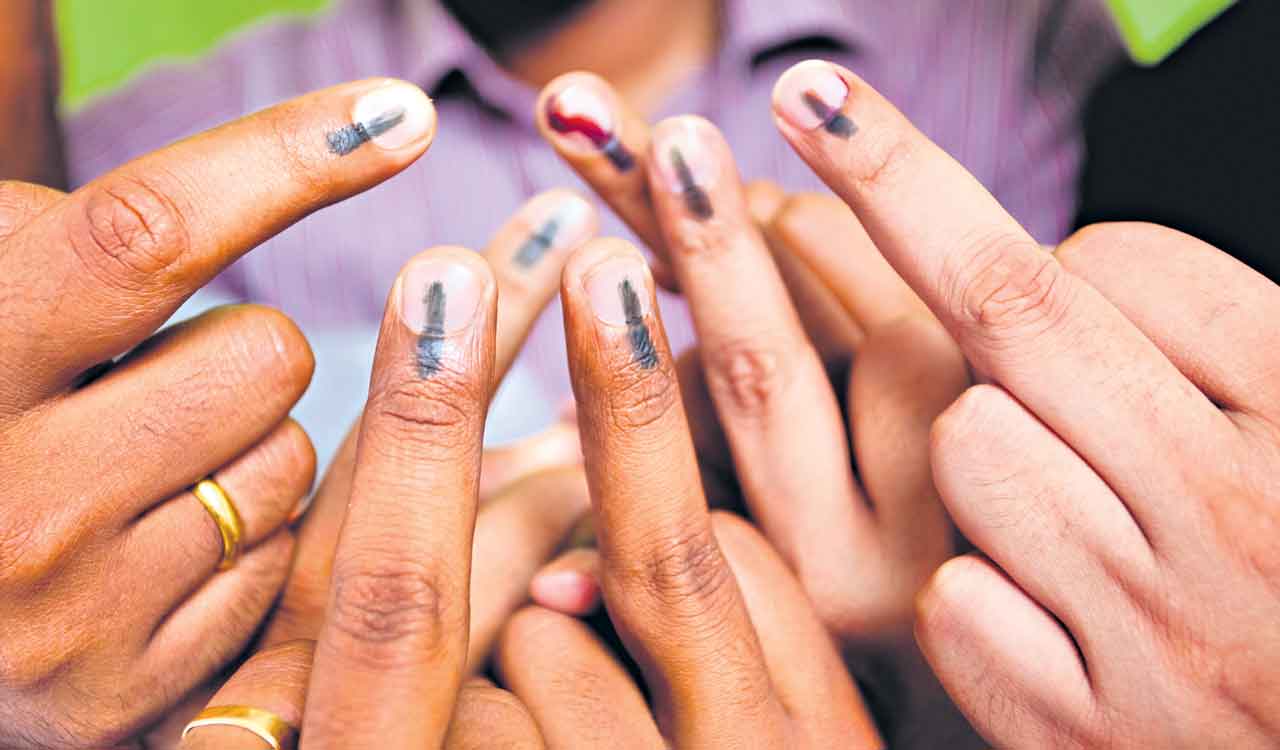The challenge for I.N.D.I.A lies in finding common ground to build a cohesive narrative
Published Date – 26 January 2024, 11:55 PM

At a time when political Hindutva has been sufficiently weaponised to garner electoral dividends, the task of its ideological rivals has become much more challenging. But the opposition alliance looks quite unprepared to rise up to the challenge. With both the Trinamool Congress and the Aam Aadmi Party declaring that they would go solo in the coming Lok Sabha elections, questions are bound to be raised over the ability of the Indian National Developmental Inclusive Alliance (I.N.D.I.A) bloc to put up a joint fight against the BJP-led NDA at the hustings. A credible alternative political, social and economic agenda alone can help the opposition take on the mighty and indefatigable electoral war machine of the saffron party. With just three months left for the general elections, there is an urgent need for a common minimum programme that is based on livelihood issues, social equality, financial inclusion and communal harmony. However, the opposition alliance has yet to initiate discussions on the framework of the CMP. Seat-sharing agreements among the constituents are yet to be sealed. As if the blow from the TMC and AAP was not enough, there are reports that Bihar Chief Minister and Janata Dal (United) supremo Nitish Kumar might return to the NDA fold, ditching the opposition camp. At a time when it is looking the most vulnerable, following the recent shock defeats in Rajasthan, Madhya Pradesh and Chhattisgarh, the Congress is coming under attack from the key constituents of the I.N.D.I.A formation which is supposed to put up a united fight against the BJP in the elections.
It is becoming increasingly clear that the key constituents of the opposition bloc are unwilling to accept the Congress in the leadership position. The worst apprehensions about the 28-party opposition alliance are coming true. Key leaders are slowly drifting away. This was largely expected because the very foundation of the alliance is flawed; the egos of leaders taking precedence over the alternative agenda. A disparate group of leaders with bloated egos and personal agendas cannot take on the mighty saffron party and its well-oiled electoral war machine. In the days ahead, the Congress, which likes to position itself as the dominant outfit in the alliance, needs to be more accommodative in the lead up to the national elections. Mamata Banerjee’s prescription that regional parties must assert themselves and prioritise State-centric issues over national alliances has added a new layer of unpredictability to I.N.D.I.A’s future. The challenge for the opposition bloc lies in reconciling the divergent aspirations of its constituent parties and finding common ground to build a cohesive narrative. It is, however, essential to acknowledge that the dynamics of Indian politics are fluid and alliances can evolve swiftly. The success of the opposition alliance will depend on its capability to forge a common agenda and communicate it effectively to the electorate.




